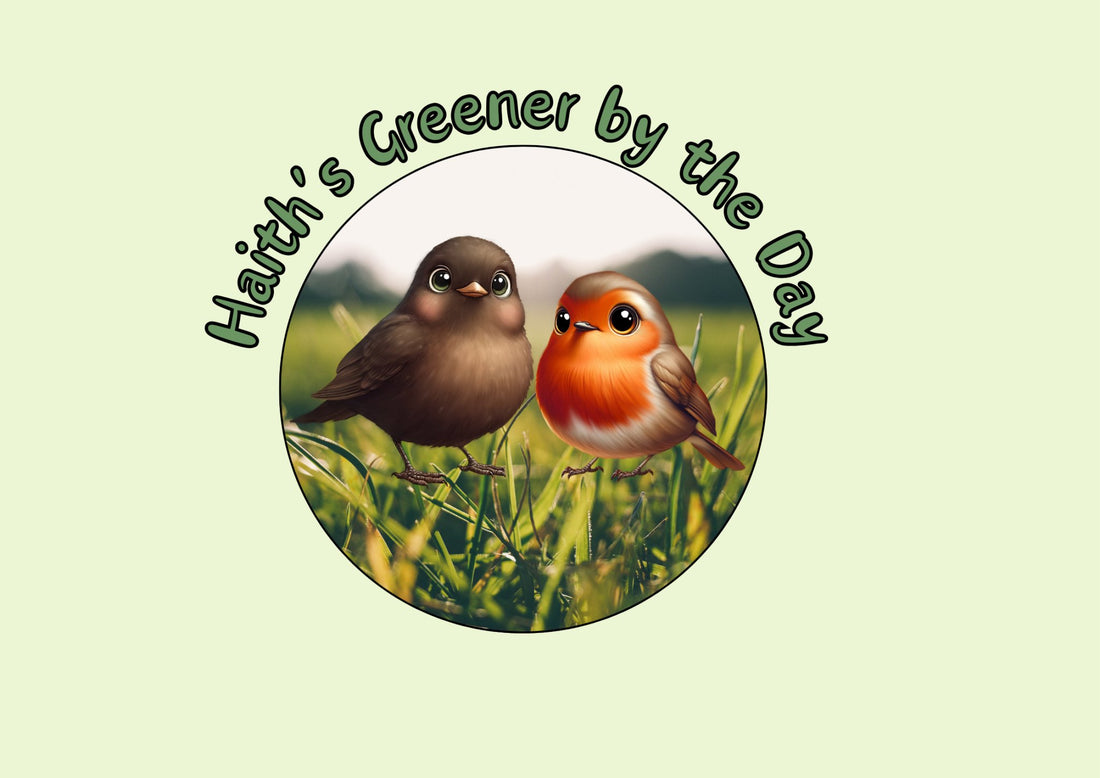
Haith's Greener by the Day - October Edition
Share
Reminder
The Ramblers will be using our carpark for their local walk around Louth on the 2nd of October. Please park on the edge of the grass like we did last time.
Gemma’s 40th
Gemma turned 40 – the team celebrated with 40 days of presents. We hope she enjoyed the lead up to her special day!

Exploring Minimalism
We live in a consumer-driven world, where it's easy to spend money and feel that brief thrill of making a purchase. However, this habit isn't always kind to the environment – or your pocket! You don’t need to adopt a fully minimalist lifestyle, but by embracing a few key principles, you can make a positive difference. Minimalism comes in different forms:
Physical - Owning fewer possessions, purchasing intentionally, and decluttering the home.
Mental - Reducing distractions, simplifying tasks, and focusing on personal growth.
Environmental - Using fewer resources, reducing waste, and living in harmony with nature. To truly experience the rewards of minimalism, consider adopting some of the suggestions below…
Decluttering Mindfully
• Donate or Recycle: Pass on items that no longer serve you to those who may need them. Donate to charity, recycle when possible, and avoid sending items to landfill if possible.
• Host a Swap: Organise clothing or item swaps with friends, family, or colleagues to exchange gently used items.
Mindful Consumption
• Shop Second-Hand: Opt for pre-loved clothing, furniture, and electronics. Charity shops and online marketplaces are excellent sources for second-hand goods.
• Embrace “Need” vs. “Want”: When shopping, ask yourself if the item is a necessity or just a passing desire. This pause can prevent impulse buying and unnecessary waste.
Simplify Your Wardrobe
• Create a Capsule Wardrobe: A capsule wardrobe consists of a few essential, versatile, high-quality pieces that can be mixed and matched. This reduces the need for constantly buying new clothes.
• Choose Sustainable Fabrics: Opt for clothing made from organic cotton, linen, hemp, and other eco-friendly materials. Avoid synthetic fabrics like polyester that shed microplastics into waterways, if you can.
Reduce Digital Clutter
• Unsubscribe from Unnecessary Emails: Clear your inbox and reduce your carbon footprint (emails take energy to send, receive, and store).
• Organise Your Files: Delete or organise old digital files, photos, and apps you no longer need.
Living with Fewer, but More Meaningful Items
• Sentimental Items: Keep items that truly matter, but avoid holding onto things simply out of obligation or guilt. Consider photographing sentimental items instead of keeping them.
• Minimalist Decor: Use simple, natural elements for home decor like plants, wood, and neutral tones. They are often more sustainable and bring a calming energy to your living space.
Minimalism in Daily Life
• Minimalist Morning Routine: Focus on a few key habits that bring you energy and calm, such as stretching, journaling, or enjoying a simple breakfast.
• Minimalist Exercise Routine: Opt for exercises that require minimal equipment, such as yoga, running, or bodyweight workouts.
Challenges and Solutions in Minimalism
• Emotional Attachment to Items: It can be difficult to part with possessions for sentimental reasons. Start small, decluttering one area at a time, and allow yourself time to process the emotions tied to the objects.
• Fear of Scarcity: Sometimes we hold onto things because we fear we might need them in the future. Recognise that this mindset can contribute to clutter and prevent you from fully embracing minimalism.
• Social Pressure: Friends or family might not understand your minimalist choices. Explain the environmental and personal benefits of minimalism and invite them to consider their own consumption habits.
Minimalism and Financial Benefits
By consuming less and focusing on quality over quantity, you can save money and reduce financial stress.
• Invest in Experiences Over Things: Minimalists often value experiences, like travel or time with loved ones, over material goods. These experiences tend to be more fulfilling and offer long-term happiness without contributing to clutter.
Long-Term Impact of Minimalism
Minimalism is a long-term commitment that can have lasting positive impacts on both your life and the planet. Over time, the practice can help you lead a more sustainable, eco-friendly life, reduce stress, improve financial wellbeing, and create a greater sense of fulfilment.
• Legacy of Simplicity: By embracing minimalism, you can inspire others – whether it’s friends, family, or colleagues – to re-evaluate their own consumption habits and move towards a more sustainable lifestyle.
• Mindfulness and Environmental Awareness: Minimalism encourages mindfulness, helping individuals become more aware of their environmental impact and more intentional about reducing it.
McMillan Coffee Morning
A HUGE congratulations to Gemma for Winning Best Baker! Thank you to everyone who has donated and contributed this year.

